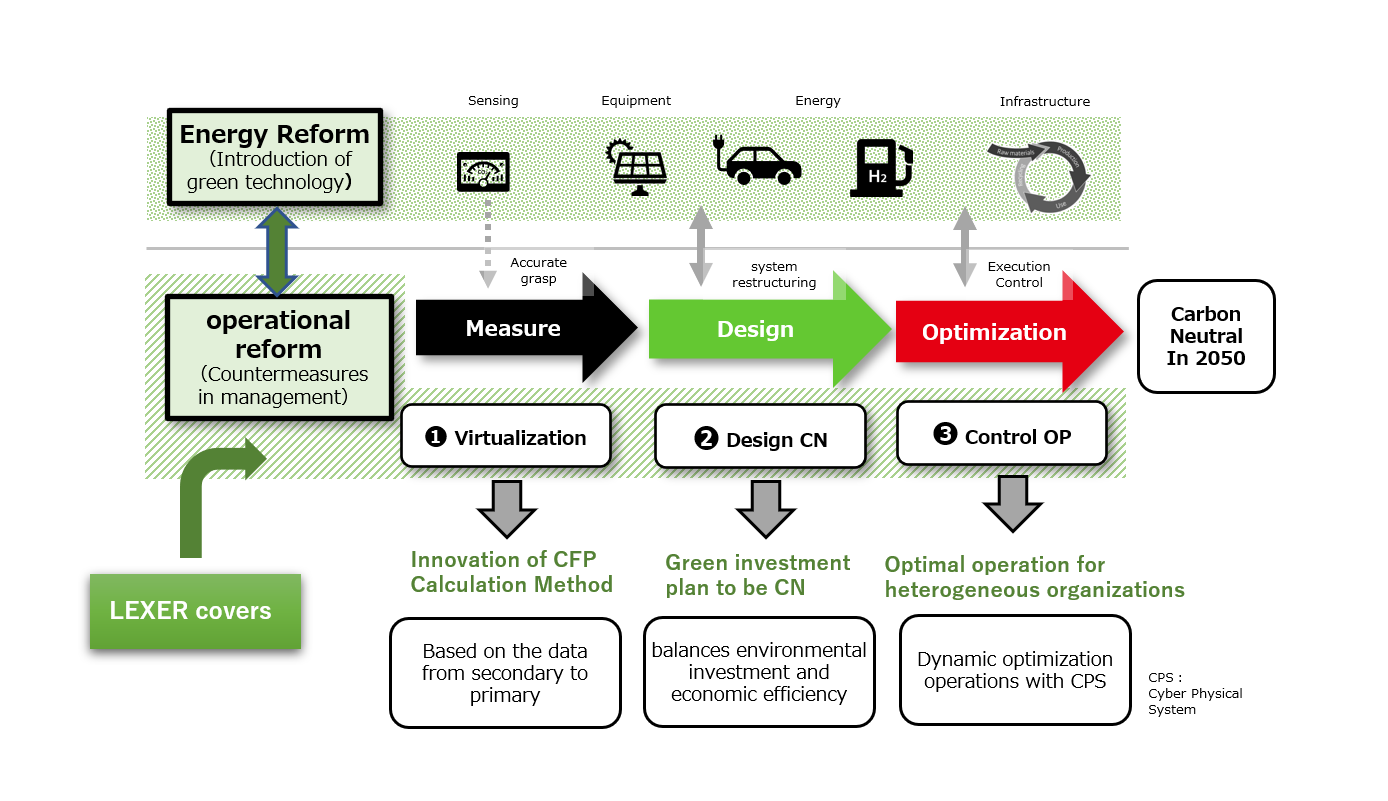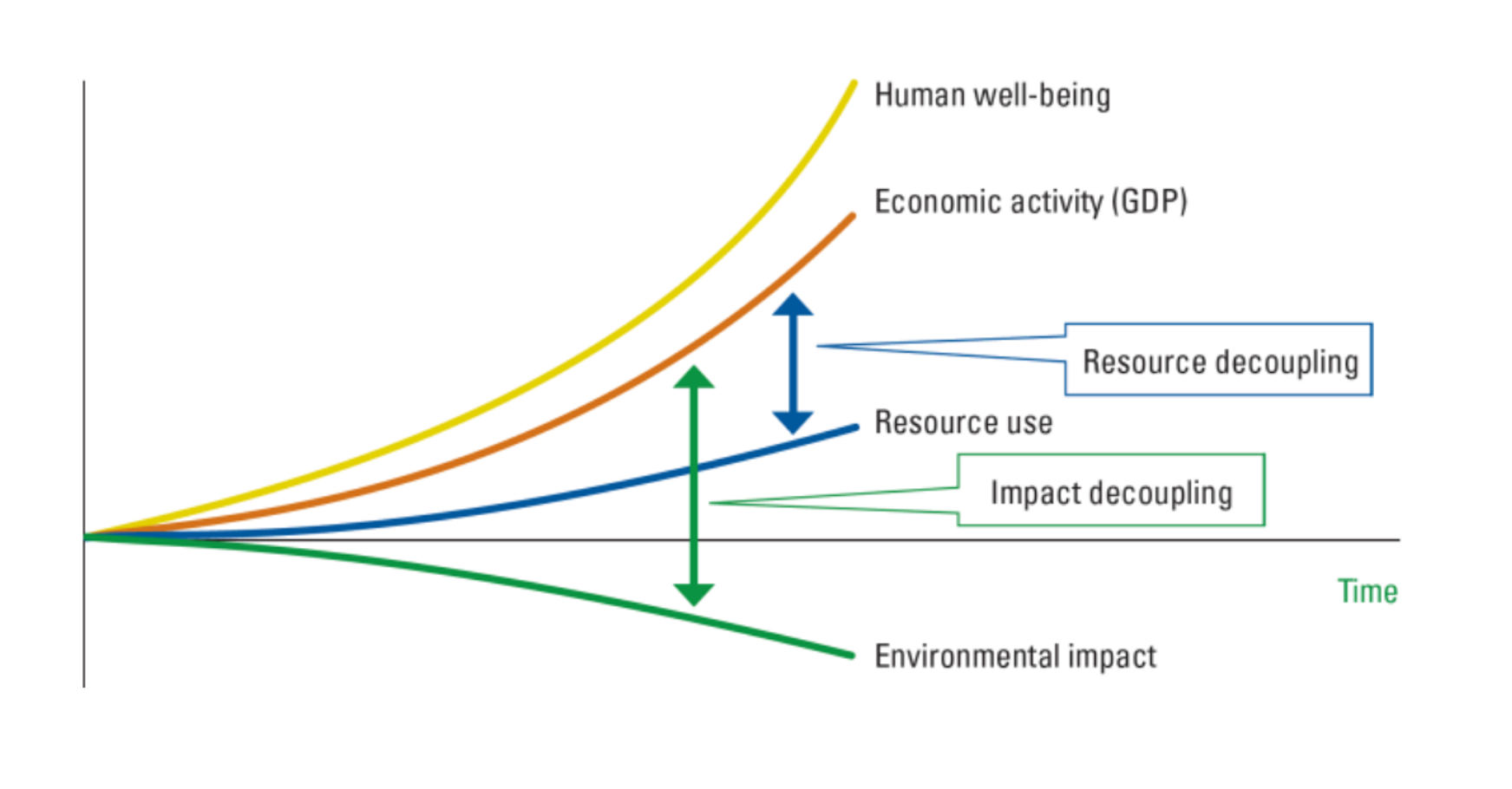CYBER Engineering
Green Strategy and Innovation
Overcoming the decarbonization problem and the industrial transformation.
- KEY・CONCEPT
Approaches toward carbon neutrality
As you know, there are various approaches to green initiatives. As you know, measures such as installing energy-saving equipment, switching energy sources, and shifting to social infrastructure compatible with a circular economy have been discussed and are being promoted. On the other hand, in order to achieve carbon neutrality by 2050, such investment activities will not be sufficient, and because these investments themselves will have a negative impact on the economy, new measures in addition to those are needed.
Therefore, in parallel with capital investment and energy replacement as device reforms, there is a need to reform business operations as operational reforms. Here, we are not only reforming business processes, but also promoting activities that include integrated optimization in combination with strategies for capital investment and energy replacement.
In order to proceed with this activity, we need to following steps to promote the project.
1) Measure
2) Design
3) Optimize
Needless to say, various technological innovations will be necessary here. For example, in step 1), “measurement,” it is necessary to shift from the conventional secondary data method based on physical quantity to the primary data method based on activity quantity, and there is a growing social demand for such a shift.
Based on the technology we have cultivated to virtualize business processes, we will promote social change toward carbon neutrality by “measuring” with primary data, “designing” business systems, and “optimizing” their operation.

Environmental Impact Decoupling
There is a causal relationship between economic development and the use of resources and energy. For the sake of human development, it is necessary to promote economic activities in such a way that they deviate from this causal relationship (decoupling).
The United Nations Environment Programme (UNEP) calls this concept “environmental impact decoupling” and advocates the need to increase resource efficiency and decouple economic activities from resource consumption and environmental impacts in order to achieve sustainable development. Since our world needs to balance economic and environmental issues, it is important to promote reforms based on the concept of environmental decoupling.
Here, one approach to achieving this is the concept of “lean production. The concept of “lean production,” which increases productivity without increasing energy, resources, etc., is an effective method for promoting environmental decoupling, and we are pursuing approaches and technologies to realize this concept.



